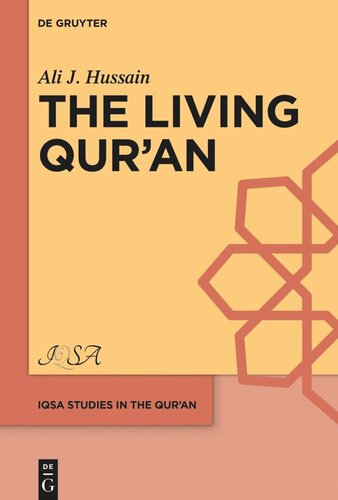

Most ebook files are in PDF format, so you can easily read them using various software such as Foxit Reader or directly on the Google Chrome browser.
Some ebook files are released by publishers in other formats such as .awz, .mobi, .epub, .fb2, etc. You may need to install specific software to read these formats on mobile/PC, such as Calibre.
Please read the tutorial at this link: https://ebookbell.com/faq
We offer FREE conversion to the popular formats you request; however, this may take some time. Therefore, right after payment, please email us, and we will try to provide the service as quickly as possible.
For some exceptional file formats or broken links (if any), please refrain from opening any disputes. Instead, email us first, and we will try to assist within a maximum of 6 hours.
EbookBell Team

5.0
80 reviewsThis work aims to distill the findings of a wide variety of scholarly disciplines into a coherent narrative of the Qur’ān’s history, from the first oral recitation to the four published Variants in active circulation today. In the process of unraveling the complicated relationships between the oral Qur’ān and the written Qur’ān, it becomes clear that there are, in fact, two histories of the Qur’ān and that the overall history of the Qur’ān cannot be appreciated without understanding the interactions between these two occasionally intertwined but often independent component histories. Discrepancies between the four qur’ānic Variants that are in active use today are indexed and analyzed. While most scholarship views the Qur’ān either in relation to its past and its possible origins, or in relation to its contemporary status as a static, fixed text, this work adopts an organic, developmental approach recognizing that the Qur’ān is a living text that continues to evolve.